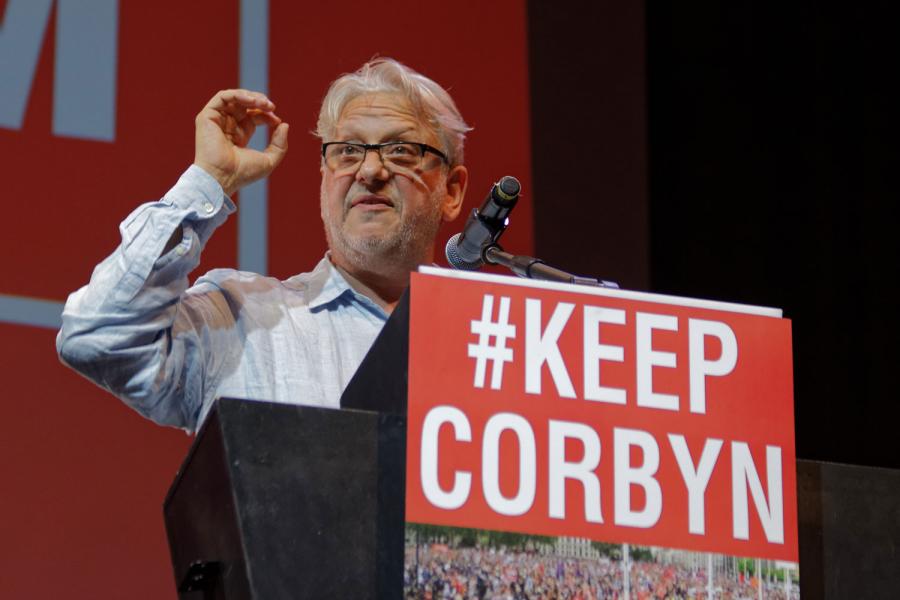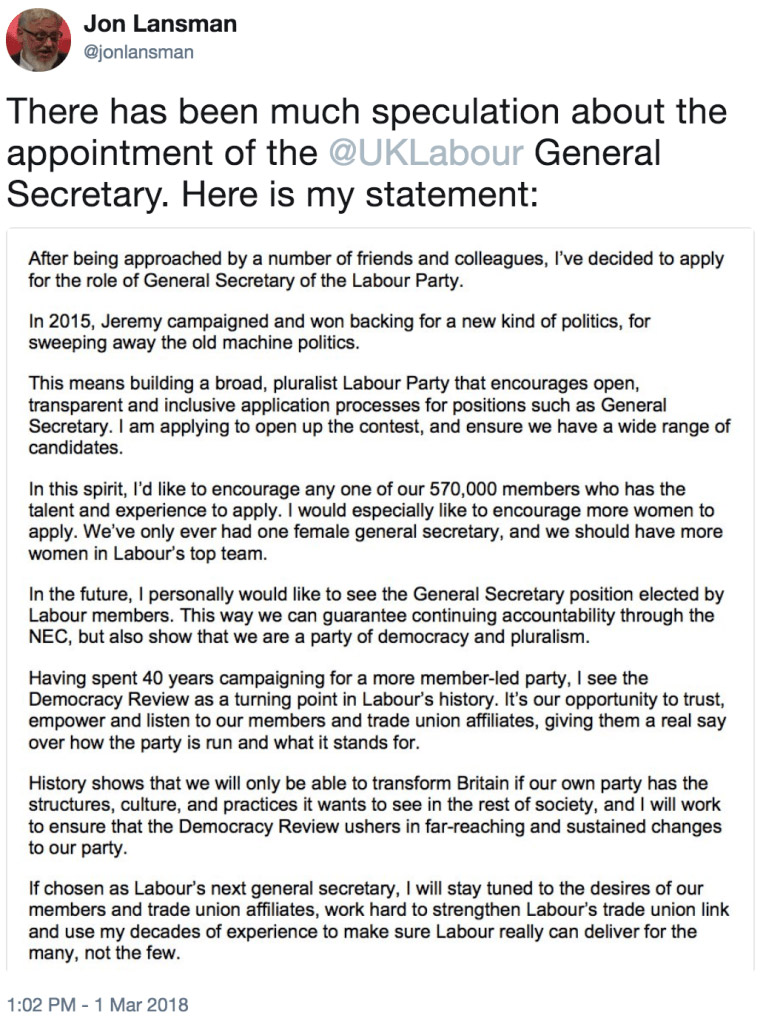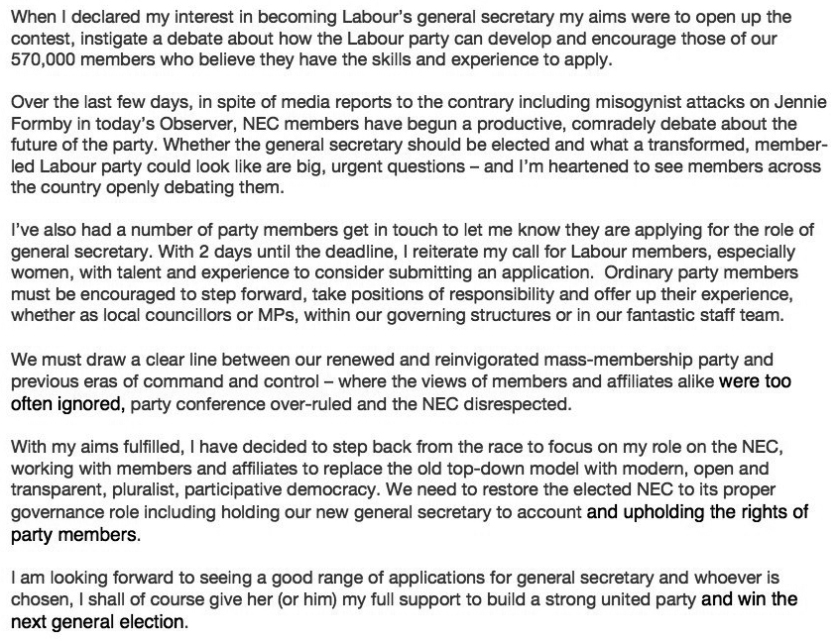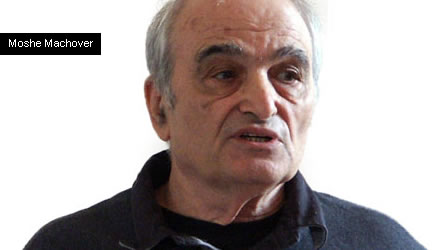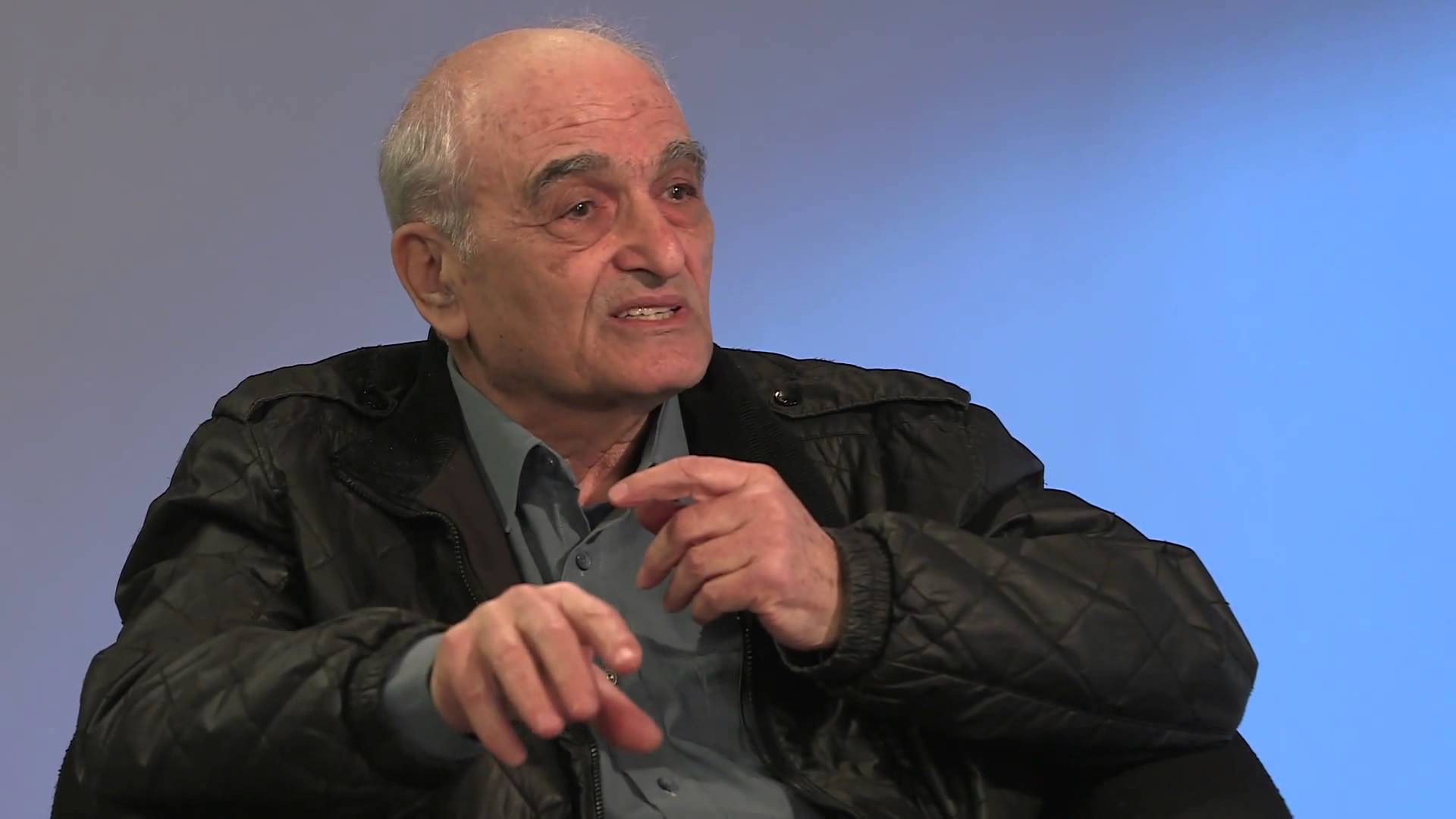The furore over the parliamentary selection process and the restructuring of Jeremy Corbyn’s office show that Labour HQ is still focussing on the top, says Carla Roberts
Enfield North, Ealing North, Nottingham East, Bassetlaw, Rother Valley, Coventry South, Luton, Liverpool West Derby, Poplar and Limehouse, Durham City – these are just some of the Constituency Labour Parties where local members have spoken out against what they quite rightly perceive as a stitch-up over the selection of their parliamentary candidates.
Even in some CLPs where candidates had already been chosen by local selection panels, the whole process was scrapped in September. Then, at the beginning of October, the national executive committee decided to take it over and installed a so-called “fast-track process”.
For priority seats with retiring or defecting Labour MPs, the NEC drew up lists of potential parliamentary candidates. These long lists of about half a dozen candidates were then handed over to “mixed panels” to whittle down the candidates for a shortlist. Mixed panels are comprised of at least one NEC member, representatives from the regional board and a couple of hand-picked local party officers. Then, and only then, have party members been given the chance to get involved and choose between those few remaining candidates.
It doesn’t look much better in those seats not currently held by ex-Labour MPs or retiring Labour MPs: There, the long lists are being prepared by regional executive committees, “working in partnership with CLPs”.
This is particularly worrying, as the decision to take the selection out of the hands of local members was made not by the full NEC, but its officers group, which is – at least on paper – dominated by the ‘left’ (unlike the NEC as a whole). Of the nine members, six can be described as supporters of Jeremy Corbyn: NEC chair Andi Fox (from the TSSA union), treasurer Diana Holland (Unite union), Jim Kennedy (chair of the NEC organisation committee, Unite union), Claudia Webbe (chair of the NEC disputes panel and Campaign for Labour Party Democracy), Ann Henderson (chair of the NEC equalities committee), as well as Corbyn himself. The three rightwingers are Ian Murray MP (who believes that “Corbyn will cost Labour the election”), Tom Watson and Cath Speight (chair of the NEC joint policy committee and a rep of the rightwing GMB).
Outrageously, the NEC does not produce minutes or reports of its decisions or discussions, making it difficult to work out who argued for what or to hold our representatives to account.
It appears though that, while some of the NEC officers demanded that local party members should have no input at all into the selection of candidates and that the NEC should simply impose them, we had, on the other side, the unusual picture of Jeremy Corbyn and Tom Watson both arguing for the same thing: namely that the whole process should be run by local Labour Party members only. Clearly, this would have been the correct and democratic way to go.
So who voted against it? Claudia Webbe and Ann Henderson were elected onto the NEC as part of the ‘centre-left slate’ supported by Momentum and the CLPD. We presume – though we can be far from certain – that they probably supported Corbyn’s position. Which means that he must have been opposed by the two representatives from Unite.
The compromise, like most compromises, stinks to high heaven. We hear that in NEC backroom deals, Momentum, Unite and the GMB have been busy dividing up parliamentary seats to make sure they get ‘their’ people in. Momentum’s owner, Jon Lansman, for example, wants his chief minion, Laura Parker, elected in Enfield North; while Momentum company director and Lansman loyalist Sam Tarry has just been selected for the safe seat of Ilford South. Neither of them has actively supported their boss’s witch-hunting of the left – but they certainly have not spoken out against it either. Both strike us as the kind of careerists who could quickly turn against the left.
To make matters worse, the long lists that have been presented by the NEC to the mixed panels often exclude the candidates favoured by local members – no doubt, in order to take out the competition. Just like during the worst days of Blairism, we see yet again candidates being parachuted into constituencies, over the heads of local members. And, in areas where the long lists were relatively balanced, we hear of underhand shenanigans and stitch-ups by regional and local officers to make sure that the most outspoken leftwingers are excluded from the shortlists going forward to CLPs.
And even where socialists got through to the short list, we hear of at least three cases where they were then removed hours before the CLP hustings at which members were going to elect their candidate. One is Colin Monehen, who gave the rousing pro-Palestine speech at Labour Party conference 2018 and who was deleted off the shortlist for Epping Forest after complaints by the Jewish Chronicle, who falsely accused him of having “defended a notorious anti-Semitic image”. The ‘evidence’ in that rag shows Colin having a discussion with somebody about the image – but he certainly did not “defend” it. Still, in today’s shrill McCarthyist atmosphere, being charged by the JC seems to be enough for party HQ to buckle. In another CLP, a candidate was bounced off the shortlist one hour before the hustings – among the reasons she was given was her support for Chris Williamson (she had uploaded a picture of both of them on social media).
Even the tame Campaign for Labour Party Democracy (CLPD) has just put out a statement and a draft emergency motion, calling on the NEC “as a minimum, to allow each CLP to add an extra person to the shortlist in order that a positive and democratic response is made to the justified criticisms, and to ensure that our party is united at all levels and thus can be totally focused on winning the general election.”
There are big problems with the CLPD. Leaving aside the notion that the current Labour Party, torn apart by a civil war, could be “united at all levels”, we would also like to remind readers that the organisation gave up on the fight for mandatory reselection of parliamentary candidates as soon as Jeremy Corbyn made clear that he would not fight for this basic democratic demand himself. Instead, at Labour conference in 2018, he instructed his close ally, Len McCluskey, to use the block vote of Unite to defeat ‘open selection’.
A historic opportunity to dramatically reshape the Parliamentary Labour Party was squandered by Corbyn’s futile attempts to appease the Labour right. He mistakenly believed that this might be ‘the thing’ that would end their campaign of sabotage against him. Naturally, it only made them stronger – and robbed party members of the chance to get rid of the whole generation of Blairite careerists and pro-capitalists who are squatting on the Labour benches.
The ‘compromise’ pushed by Corbyn and his allies – the reform of the trigger ballot – has been a shambles: Not only did the NEC delay its implementation, meaning that in many areas they still have not even started. The timetable issued by the NEC is also needlessly slow and meandering: it takes nine weeks until a full selection process can even start. Should a snap election be called soon, most CLPs will not be able to finish the trigger process and, as a result, the sitting MP will automatically become Labour’s candidate once again.
Leader’s office
The “restructuring” of Jeremy Corbyn’s office has given the press some more material for salacious stories with which to attack him and the rest of the party leadership. But it also shines a rather interesting light on how members’ dues are being spent and where Labour HQ’s priorities lie.
First up, we should say that we do not quite believe that this restructuring is somehow proof of a soft coup against Corbyn orchestrated by shadow chancellor John McDonnell (in order to force Labour to adopt a stronger ‘remain’ position on the European Union). Apparently, Corbyn requested that McDonnell should head the office restructuring programme to make the party ‘fit’ for the general election – but was reportedly blindsided when McDonnell removed Karie Murphy from the office. Corbyn, we read in Steve Walker’s exacerbated blog The Skwawkbox, was so upset that at a shadow cabinet meeting, he “kept an empty seat next to him” in honour of Murphy.
Really? This story does not make a lot of sense to us. Jeremy Corbyn surely has some say over the removal of his chief of staff. Also, it is not like Karie Murphy has been sent to Siberia: she will actually oversee the party’s general election campaign – a pretty important job. We also read that she retains her title – and her massive salary of over £90,000 a year.
Do we really need to pay Labour Party full-timers that much money? Could this not be better spent? It is near impossible to find out how many people work for the party or the leader’s office or what they earn. We gather that there must be around 50 people working there alone: The Guardian recently wrote that “parliamentary records show that 46 people have been issued with parliamentary passes to work in Corbyn’s office”, while 37 of the staff have been “invited” for interviews as part of the restructuring programme.
In any case, this is, in our view, a surprisingly large number of full-time staff. As a comparison, while leading the October revolution, the secretariat of the Bolshevik Party consisted of eight people – including Lenin’s wife, Krupskaya, and his brother.
The resignation letter of Andrew Fisher, Corbyn’s chief of policy and long-standing member of the Labour Representation Committee, certainly shines an interesting light on the life in the leader’s office: It seems overstaffed, while also being underorganised – perhaps a case of too many cooks spoiling the broth. He criticises the fact that the left hand does not seem to know what the right hand is doing, with different groups of advisors leaking different stories to different parts of the media; meanwhile different heads of this or that sub-team are pulling speeches and not telling others about it. “They are a snapshot of the lack of professionalism, competence and human decency which I am no longer willing to put up with daily.”
Then there are the hundreds employed in the media and communication departments at party HQ and, crucially, the regional offices, which are stuffed with people first hired by former rightwing general secretary Iain McNicol. As we now know, many of them were issued with contracts that make it almost impossible to fire them, so Labour HQ has employed many additional staff to ‘balance’ things out. But the right still seems well in charge in most areas. It did not come as much of a surprise, for example, when 124 Labour staff members of the GMB recently voted ‘yes’ to the union’s suggestion to “demand apologies from the party to former colleagues who took part in the BBC Panorama programme” that accused Labour of being riddled with anti-Semites and doing nothing about it. It seems about time that some of these contracts are brought to a swift end.
Witch-hunters
Last, but not least, there is the massive expansion of the ‘governance and legal unit’ (formerly known as the compliance unit), which is the party’s witch-finder department. Dozens of new ‘case workers’ have been employed to investigate the mostly false and malicious charges against party members made by rightwingers like Margaret Hodge MP, Tom Watson or the vicious ‘Campaign against Anti-Semitism’. The party spends huge resources on investigating and harassing its own members in this way.
We are aware that we are in the middle of yet another round of suspensions in the party, probably in the hope that, by throwing Labour Party members under the bus now, they cannot be targeted by the right, come a general election. Most of the charges are, as can be expected, ludicrous and we note that in a number of cases, articles from Labour Party Marxists supporters have been listed as incriminating ‘evidence’. For example, a report of the 2018 Labour conference, in which we criticised Emily Thornberry’s stomach-churning, witch-hunting speech that she despicably interspersed with cries of “No pasaran!” We quite rightly called her a “pro-Zionist”.
None of the charges are quite so ludicrous though as the ongoing campaign to kick Chris Williamson out of the party. Rather than accepting the NEC’s anti-Semitism panel’s decision to reinstate him to full membership, the party must have spent thousands of pounds of members’ dues fighting him in the courts – and, of course, scrolling through his Facebook and Twitter posts to find ‘evidence’ against him that would allow for a third suspension.
With the influx of hundreds of thousands of new members since Corbyn’s election, the Labour Party certainly has amassed a small fortune. But it seems to be spending the money entirely on the wrong things. Surely, the bulk of it should find its way back to the organisations on the ground. But CLPs still rarely get more than the “minimum cash allocation of £1.50 per paid-up member” – per year! In many areas, CLPs had to fight the 2017 general election without a single penny from Labour HQ, including in seats that were then won by Labour. We presume things will not be much different next time around.
Imagine what local branches and CLPs could do with the amount of energy and enthusiasm first released by Corbyn’s election. At the moment, this is usually spent on rather dire rounds of leafleting and canvassing those who are already Labour supporters … which causes the enthusiasm of many members to quickly dry up, unsurprisingly. Any initiatives that go slightly beyond this scope are usually shut down by some local or regional officer.
With a more energetic outlook and some decent financial support, local members could organise all sorts of local events, festivals, film showings – and perhaps even launch local working class newspapers, radio stations, even TV channels. This kind of critical engagement with the world around us is needed if we are serious about building a real working class party. The German Social Democrats in the early 20th century should serve as an example to aspire to. There were scores of local Social Democratic papers.
In other words, we need less ‘professionalism’ in the party, fewer regional officers, fewer full-time witch-hunters – and much more empowerment of those below – if we seriously want to transform the party into a vehicle for socialism.
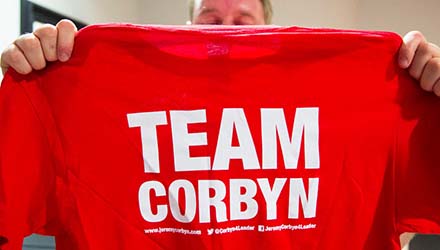
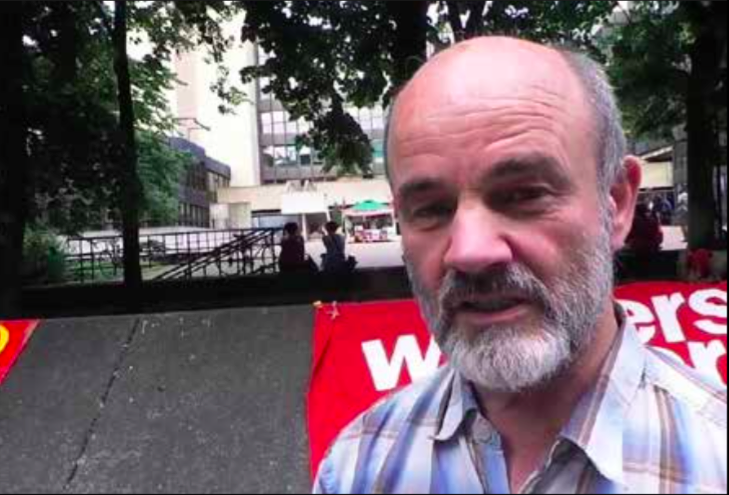
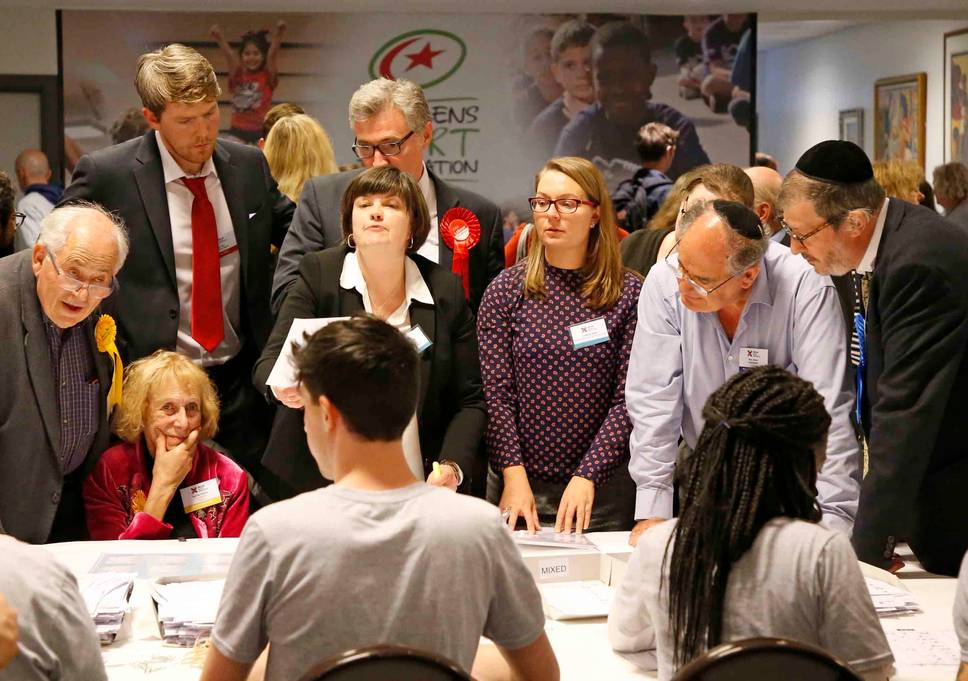
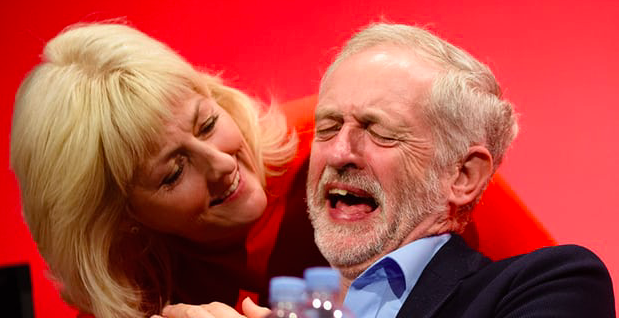
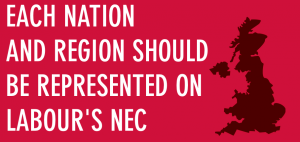 Labour First and Progress have just announced the
Labour First and Progress have just announced the 